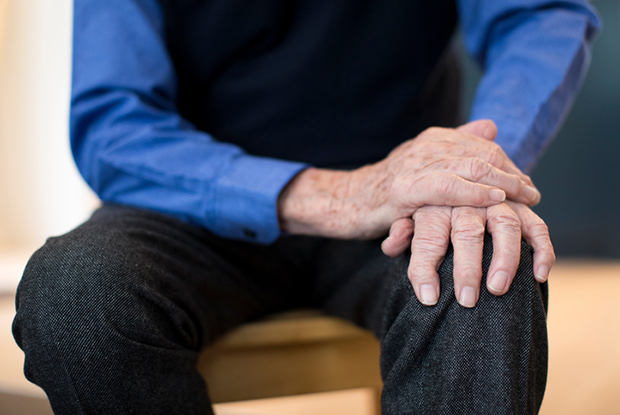Living with Parkinson’s disease
There is no cure for the disorder. However, medication, surgery and exercise offer real hope to patients.

Picture: iStock
April 1 was World Parkinson’s Day and to mark the day, I attended a Dance for Parkinson’s class with some people living with Parkinson’s disease (PD) at Medtronic Africa.
PD is a chronic and progressive neurodegenerative disorder resulting from a loss of brain cells responsible for dopamine production. Patients with the disorder present a range of symptoms that affect movement which, if left untreated, progress to where sufferers are unable to care for themselves.
Although there are no available statistics in South Africa, experts believe prevalence of the disorder mirrors that in the rest of the world, where the average age of onset is 60 years, with one in 10 patients being under the age of 50.

Picture: iStock
There is no cure for the disorder. However, according to specialist neurologist Dr Dave Anderson, dramatic improvements over recent years in medication, surgery and exercise, the three pillars of treatment, offer real hope to patients.
Medtronic Africa is a leading medical technology company that provides the surgical device that helps reduce movement symptoms through deep brain stimulation (DBS). Anderson is one of a handful of local neurologists trained in DBS.
The treatment uses a small, pacemaker-like device, placed under the chest skin to send electronic signals to an area in the brain that controls movement. These signals block some of the brain messages that cause three movement symptoms of Parkinson’s: tremor (shaking), slowed movement (bradykinesia), stiffness (rigidity).
I spoke to Gary Petler who was diagnosed with the disorder 17 years ago and was one of the lucky recipients of DBS treatment from Medtronic Africa six years ago. Petler is currently using his second device, the first one having lasted for four-and-a-half years. He shared snippets of his journey with PD.
Petler recalls how life was extremely challenging prior to DBS intervention over six years ago and is now thankful to Medtronic for providing him with the treatment that has improving his quality of life.
Whereas he was previously unable to take care of himself, with DBS he is now able to drive his car, walk with a fairly normal gait, has no visible body tremors and can generally take care of himself. The only thing that affects him is his balance. In fact, he lost his balance and had a terrible fall just over a week ago. He is lucky to have his wife of 38 years by his side.
Petler says that because of DBS, he is still able to work a normal job. He, unfortunately, had to give up running his own business and is now employed by an understanding boss who has knowledge of how Parkinson’s affects its sufferers.
It is sad to hear that there are many people living with PD who often lose their jobs because of how the disorder affects them and their work. Although Petler lives permanently with the DBS device, he has good and bad days. He says he has learnt to deal with the bad days a lot better over time but he is blessed to have an understanding and supportive family.

Picture: iStock
Exercise for PD disorder
Dance for Parkinson’s SA is a life-enhancing movement programme that increases mobility and quality of life of patients. It shows how people living with the disorder can still live happy and fruitful lives.
The programme offers specialised dance classes to patients, their families and caregivers. The benefits include:
- Increased grace, flexibility and range of motion;
- Connection of mind to body;
- Improved balance and special awareness; and
- Social interaction, creativity, confidence and joy.
I thoroughly enjoyed the one-hour dance class. It was a combination of stretching, flowing movements to teach spacial awareness, rhythmic movements and memory games
https://www.instagram.com/p/BwHayivJ7-G/
Most time in the class was spent sitting on chairs. This is to accommodate patients who are not able to stand for too long and those that suffer from stiff or frozen muscles. It was heart-warming to be welcomed to the class by patients and their families.
Dance for Parkinson’s SA instructor Tarryn Tyack, who has experience in dance and Pilates, gives weekly classes at Wanderers Club in Rosebank, Johannesburg, and is hoping to provide classes throughout Gauteng in order to reach more people living with PD.
To contact Tarryn Tyack and book classes, e-mail her at tktcreative@gmail.com
Zulu is a qualified biokineticist and cofounder of PopUpGym. Follow her on Instagram: @letshego.zulu Twitter: @letshegom. Facebook: Letshego Zulu
For more news your way, download The Citizen’s app for iOS and Android.




